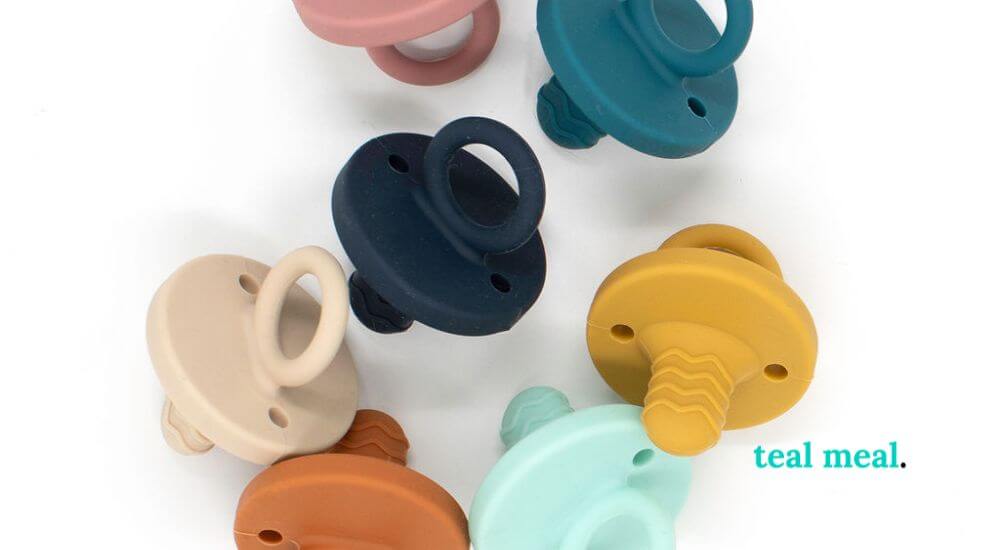
How teething pacifiers can benefit teething babies
Teething can be a tough time for both babies and parents. The discomfort and pain caused by new teeth pushing through the gums can make babies fussy and irritable, which can make life difficult for everyone involved. This is where teething pacifiers come in. They can provide a range of benefits for both babies and parents, making the teething process a little easier to handle.
One of the main benefits of teething pacifiers is that they can provide comfort to babies who are experiencing the discomfort of teething. The pressure and sensation of sucking on a pacifier can help to alleviate the pain and discomfort caused by new teeth pushing through the gums. This can lead to a happier and more settled baby, which can make life easier for parents who may be having difficulty calming a fussy and irritable teething child.
In addition to providing comfort, teething pacifiers can also help to soothe babies who are struggling with sleep issues. Many babies find it difficult to fall asleep without the soothing sensation of sucking, and a pacifier can provide this sensation without the need for constant breastfeeding or bottle-feeding. This can be particularly beneficial for parents who are trying to establish a regular sleep routine for their baby.
Another benefit of teething pacifiers is that they can help to develop healthy oral habits. When babies chew on teethers, they are using the muscles in their mouths, which can help to promote proper tooth and jaw development. This can be particularly important for babies who are born premature or who have other conditions that affect their oral development.
Teething pacifiers can also be a good tool for parents who are trying to wean their baby off breastfeeding or bottle-feeding. Once a baby has gotten used to chewing on a teether, it can be easier to substitute it for other forms of comfort and soothing. This can make the weaning process a little easier for both the baby and the parent.
Another benefit of teething pacifiers is that they can be used as a way to distract babies from other sources of discomfort. For example, if a baby is having trouble sleeping due to teething pain, a pacifier can be used to provide comfort and distraction, which can help the baby to fall asleep more easily.
Finally, it's worth noting that pacifiers are available in different materials, such as silicone and rubber. These materials can be more durable and can withstand the wear and tear of teething babies. Some teething pacifiers are also designed with textures that can help to massage and soothe a baby's gums.
Teething pacifiers can be a useful tool for both babies and parents during the teething process. They can provide comfort and relief from the pain and discomfort of teething, help to soothe sleep issues, promote healthy oral habits, assist with weaning, and distract babies from other sources of discomfort. It's important to note that it's recommended to start introducing pacifiers after 6 weeks of age and to be consistent with their use so that the baby doesn't get too attached to it. And also, it's important to keep in mind that each baby is unique and what works for one, may not work for the other. Consult with your pediatrician to determine if a teething pacifier is right for your baby and to help you find the best one for your baby's needs.

